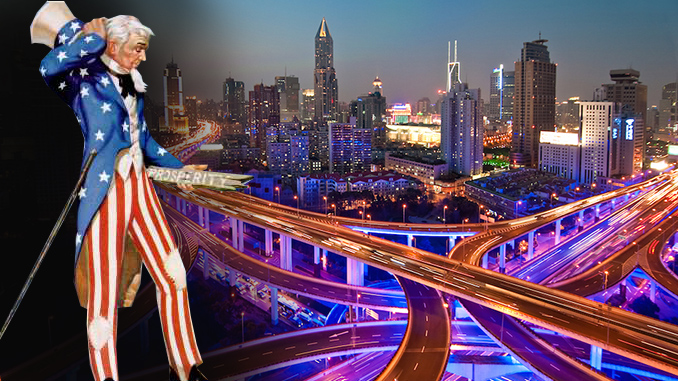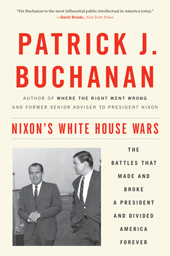
The U.S. should emulate major planks of the Chinese financial resurgence program before that economically booming nation leaves America in the dust.
By Dr. Kevin Barrett
The most serious foreign policy decision the U.S. faces is how to deal with the rise of China. The Chinese economy has enjoyed historically unprecedented, explosive growth, with real per capita income rising 1,300% in three decades. As a result, China is about to overtake the U.S. as the world’s largest economy, if it has not done so already. By 2030 it will have begun leaving America in the dust.
Since economic strength is the basis of technological and military power, U.S. strategists are naturally concerned. Such strategic worries may be the real reason for Canada’s U.S.-incited kidnapping of Huawei CFO Meng Wanzhou. Wanzhou was ostensibly arrested for violating sanctions on Iran, but according to Anatoly Karlin’s “Connecting the Dots in the Huawei Kidnapping,” published at “Unz.com,” Wanzhou was on route to Argentina to meet with Zhang Shoucheng, the physics genius behind an apparent breakthrough in microchip technology.
The Wanzhou-Shoucheng meeting never happened. On Dec. 1, 2018 Wanzhou was kidnapped in Vancouver by Canadian authorities following U.S. orders. On the very same day, Shoucheng allegedly committed suicide in California, leading some to believe that Wanzhou and Shoucheng may be victims of a covert U.S. war on Chinese strategic technology.
Should Americans panic about the rise of China? Would a world dominated by Chinese economic and technological power become a global gulag, given traditional Chinese authoritarianism, autocracy, and anti-individualism? There are reasons for concern. China is already a near cashless society, meaning the individual has zero economic privacy. Likewise, China is leading the lemmings’ stampede toward a 5G “Internet of things,” a dystopian nightmare in which your refrigerator, washing machine, vacuum cleaner, toaster, electric meter, and self-driving automobile will all be spying on you . . . until the day they realize they don’t really need you anymore.
China’s embrace of techno-dystopianism is dismaying but not surprising, given that nation’s traditional preference for conformism over individuality, and for materialism over spirituality. The Chinese Internet is even more censored than ours, though ours is rapidly catching up. Dissidents are rigorously suppressed. Uyghur Muslims are kidnapped by the hundreds of thousands and forced into re-education camps, where brainwashing specialists attempt to annihilate their religion and culture.
But there are also positive sides to China’s centralized system of power. China’s 80%-state-owned banks, unlike privately owned Western central banks, are dedicated to the public interest, not private profit. That is why Chinese economic growth has outstripped the West’s, and why Chinese infrastructure projects, including the One Belt One Road initiative, are the eighth wonder of the world.
Among China’s incredible infrastructure projects are an impressive array of environmental initiatives subsumed under the rubric of “Ecological civilization.” Chinese cities have sprouted green belts, limited the private automobile, and enabled an array of green transportation alternatives. Beijing now has the world’s greatest metro. Migration to the overcrowded big cities has been reversed, and thousands of organic farming-based green villages are emerging. Coal is now supplying slightly over half of China’s power, down from 80% in 2010. According to John Cobb and André Vltchek’s China and Ecological Civilization, China’s environmental situation is improving more rapidly than in any other nation. For a country experiencing such rapid economic growth, that is rather miraculous.

So perhaps we should consider Chinese virtues as well as Chinese vices. Unfortunately, many strategists see the U.S.-China faceoff as a zero-sum game, a fight that will have a winner and a loser. Their insistence on winning at any cost, or at least trying to, could reinforce the worst aspects of Chinese power.
Rather than falling into the Thucydides trap of war between an American hegemon and a rising China, American policymakers should learn from China’s experience. Specifically, the U.S. desperately needs to nationalize its banks and issue its own currency in service to the public interest. Then, like China, it would be able to finance economic growth while improving its infrastructure and raise living standards, even while moving toward ecological sustainability.
By eliminating private central banking, the U.S. could revive itself as a moral and spiritual as well as economic competitor to China. Under the current neoliberal, banker-owned, post-9/11 police state, we barely even pay lip service to the ideals of freedom and individuality that supposedly distinguish us from Chinese authoritarian leaders and conformist subjects. Sometimes it even seems that our leaders are competing with China and other authoritarian countries to see who can crush the free human spirit more efficiently.
Kevin Barrett, Ph.D., is an Arabist-Islamologist scholar and one of America’s best-known critics of the War on Terror. From 1991 through 2006, Dr. Barrett taught at colleges and universities in San Francisco, Paris, and Wisconsin. In 2006, however, he was attacked by Republican state legislators who called for him to be fired from his job at the University of Wisconsin-Madison due to his political opinions.

